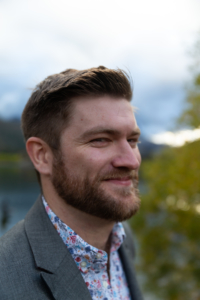Uluburun
Off the coast of Turkey—at Uluburun—is a shipwreck. It’s a Bronze Age wreck, most likely of Mycenaean origin. You can remember the exact moment you first lost yourself to its mystery and fantasia.
There you were in the small, quiet hours of the morning with your sweaty blankets kicked off, neck at a horribly uncompromising angle, and a laptop perched on your chest inches away from your face. On the screen was a Reddit post of a skull wearing a funerary mask of paper-thin gold. The mask had been raised from the Uluburun Shipwreck and perhaps, you think, the skull is only being used for purposes of exhibition. But perhaps it isn’t, and now you just have to know if this skull was raised from the depths, too. Was this peaceful old skull and this bit of smithed beauty married together by the Fates? You imagine your own face wedded to that lustrous gold at your passing ceremony.
You are prone to reading and re-reading the Wikipedia articles and the Reddit threads on the wreck. You place yourself into the lives of the sailors. The myriad pictures of the cargo salvaged from the seafloor take you there, the origin map of the raw materials and manufactured goods takes you a step further. The miniature reproduction of the ship begs for a name. Surely she had a nickname: a moniker in pleasant sailing, a curse in nastier going, but what was her official name? You’d name her after a goddess, a quality. Haste. Or Dauntless.
But it’s the manifest that puts you in the dark hold of the ship. The ten tons of raw copper, the clay amphora stuffed with resin, the logs of ebony, the ivory—not just from elephants but also the ivory teeth wrestled from the jaws of hippopotami, the figs and the almonds and the olives, the jewelry of gold and silver, the ceremonial axes that never reached their destined ceremonies. You smell now, too, the black cumin and dip your hand into the earthen pot full of the seeds at your side. A jumble of the delicate strands of cumin tangle together in your cupped palm and you bring them to your face inhaling the dull heat that feels, to your nose at least, like the progeny of sun and earth and your mouth is set to watering. You were sent down for a task, you know, but you can’t corral the specific reason so instead you spend a moment with the cumin before plucking a few stray grapes from a thick strand at the base of the cargo hatch ladder.
To make certain all the ingots are tied down. That’s why you’re here ducking under beams and bashing your feet against unseen obstacles. How quickly you forget yourself when you’re waiting for your eyes to adjust in the black bowels of your small ship.
It’s all coming into focus, and it looks as though some of the copper slabs have shifted on account of the rough handling you’ve suffered from the waves but you refuse to move them back into place, they’re heavy as all hell and awkward, too, so you’re content just to poke around for a bit and fondle some precious stones or maybe find something that won’t quite be missed when you make it to the next port. Inside a wooden crate you find a smallish cosmetic box carved from some light, fine stone and inside is a thin medallion of hammered gold and it’s the centerpiece on a string of deep-blue glass beads and you can’t make out what’s inscribed on the medallion but you secret it among the folds of your tunic all the same and close the cosmetic box and close the crate and shift a sack of pomegranates onto the lid of the crate.
You hear a shout from above deck and you know that you’ve been spied throughout and the medallion weighs like an anchor on your neck but the ship smashes into something then, and creaks and groans like a horrible, struck ox before losing a splintering cracking gasp and now there is suddenly the feeling of the floor coming undone and the rush of water fills your ears and you briefly feel the sea on the tops of your feet before the dark of the hold is replaced by another darkness entirely and you’re grasping for your new lucky medallion but you’ve lost it already, forever.
Maybe it is your skull that wears the funerary mask after all.
Dan O’Leary lives and writes in Santa Cruz, CA. When not working to complete his MFA in Creative Writing from Antioch University Los Angeles, he is penning nonsensical postcards.





